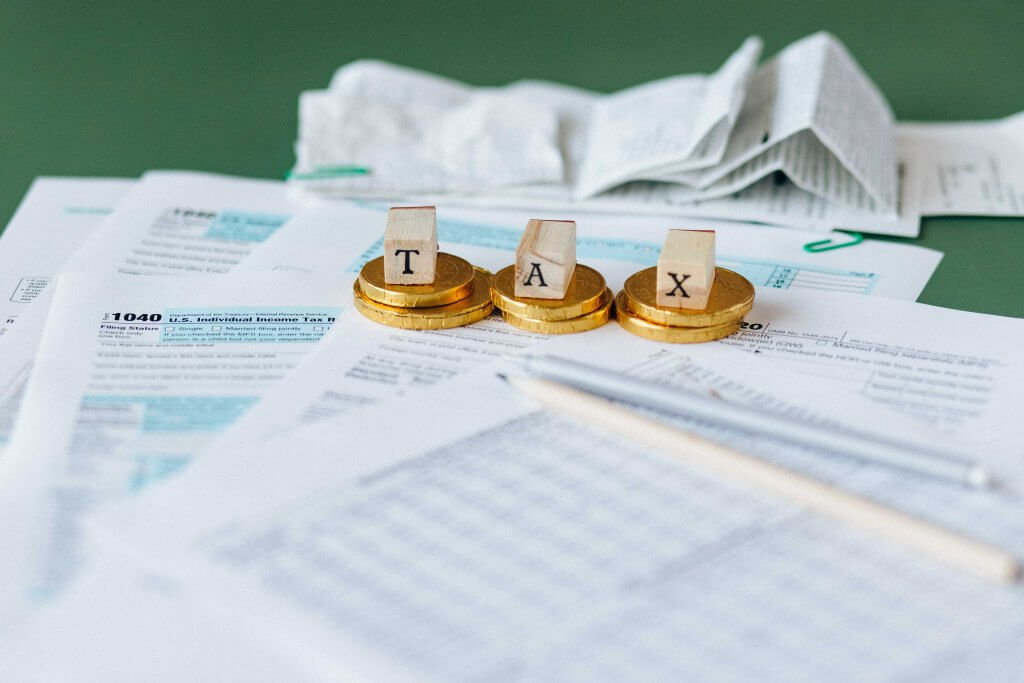How Much Does it Cost to Start An Airbnb Business?
The cost of a vacation rental business will vary depending on the location, the size of the property, and more. Think of everything you will need to put into owning a home when budgeting. Utilities, repairs, maintenance, and other fees need to be considered when starting a vacation rental business.
Hosts can pay $4,500 or more just to outfit their property. This is on top of your mortgage and future costs and fees. This is why it’s important to budget and know the costs of your Airbnb business before purchasing a property.
What Are the Main Airbnb Business Expenses?
Airbnb expenses can add up over time.
Successful property owners and managers diligently track each of their expenses. The following are Airbnb business expenses every host needs to be aware of.
Vacation Rental Start-Up Costs
The key to a lucrative vacation rental business is to understand your start-up costs. These costs will inform you of whether or not running an Airbnb business will be profitable for you in the long run.
Airbnb start-up costs:
- Mortgage
- Business loan, if applicable
- Insurance, permits, and bonds
- Security devices, if applicable
- Repairs or remodeling, if applicable
- Marketing and advertising efforts
- Cleaning and other services
- Furniture and decor
- Pricing or property management tools
- WiFi and Internet access
Quality Cleans, Competitive Rates!
Find the best cleaner bids within your budget on Turno
Airbnb Service Fee
Another cost associated with a vacation rental business is a service fee that will be paid out to Online Travel Agencies (OTA’s). Airbnb service fee is the most popular. They charge hosts 3% of each check-out for their split-fee option or 14% or more for their host-only option. Other OTA’s like Vrbo and Booking.com also take out service fees. This is a cost that hosts cannot get around.
Property Manager Commission
Most hosts choose to take on a property manager regardless of if they own a single property or multiple.
A property manager is an efficient way to streamline your vacation rental business. They take care of the day-to-day management of your property. However, it is standard to give your property manager a cut of each paid listing. The good thing is that you and your property manager can agree to a commission fee when onboarding.
Recurring Airbnb Expenses
In addition to start-up costs, you will have recurring expenses to keep track of. Start-up costs like cleaning services, maintenance, and marketing will also be recurring. This is because they are necessities to keeping your vacation rental business running smoothly.
Additional recurring Airbnb business expenses:
- Annual business license
- Annual rental inspection
- Homeowner’s Association (HOA), if applicable
- Maintenance and repairs
- Property and sales tax to both state and federal
- Utilities
- Restocking consumables
- Staff wages
- Property Staging
Amenities to Scale Your Property
Think down the line when investing in your Airbnb property. To have a competitive edge, you are going to need to spend a little extra on amenities. Fortunately, not all Airbnb amenities are going to cost you a fortune.
Common Airbnb amenities to consider providing guests:
- Streaming services
- Updated appliances throughout the property
- Extra stock of necessities
Why Is It Important to Track Airbnb Expenses and Income?

As an Airbnb host, it’s important to track your expenses and income. Keeping a detailed record of this information is essential to keep your business running smoothly.
Any small expense related to your Airbnb property is worth including in your financial records to maximize tax savings. You or your accountant can use this information to ensure your taxes are filed correctly and even help you get more money in your return.
New hosts can tend to get swept up in the grand scheme of things and neglect key aspects of running a successful Airbnb business. Bookkeeping and accounting, taxes, paying contractors, and keeping receipts are a few examples of what hosts often forget the importance of. These are factors that tell you whether or not your vacation rental business is profitable.
If you are unaware that you are spending more than earning, then you’ll run into trouble quickly. Diligently tracking your Airbnb expenses and income will prevent any significant losses.
5 Tips for Recording Airbnb Expenses and Income
It’s common for a vacation rental owner to struggle with Airbnb bookkeeping, but there are ways to alleviate some of the stress.
Whether you’ve just started your Airbnb business or are an experienced host looking for better ways to manage multiple rental properties, we’ve provided 5 tips to help you efficiently track your Airbnb expenses and income.
1. Open a Bank Account for Your Business
Having two or more bank accounts may sound like extra work, but it’s actually the opposite. By opening a separate bank account for your Airbnb business, you will know exactly which vacation rental expenses go along with your business.
Keeping both personal and Airbnb income and expenses in one place may save you a few bucks every month. However, it will make tracking much more complicated when tax season comes around. Having an extra bank account for your Airbnb business may also allow you to redeem a portion of the monthly bank fee as a tax deduction.
2. Choose the Right Credit Card Processor
To better keep track of your Airbnb payments from direct booking sites and upsell services, choose a reputable card processor like Stripe.
Not only will this ensure that guests can simply and quickly send you payment, but you will also be able to manage revenue and receipts while preventing potential issues like losing records and payment errors.
By centralizing income transactions in a secure, scalable, and reliable credit card processor, you will find collecting income data to be much easier and faster.
3. Hire an Accountant
Hiring a Certified Public Accountant (CPA) can give you helpful advice on what vacation rental hosts should keep track of.
Because accountants are knowledgeable about local tax laws, they can help you find tax-deductible Airbnb expenses that many vacation rental hosts overlook. These include office equipment, property taxes, HVAC improvements, and more.
According to short-term rental expert Richard Fertig, by meeting with your CPA, “you’re going to be really surprised by how much you can write-off legally against your business.”
Working with an accountant and getting professional assistance will give you peace of mind knowing that your taxes are being filed properly and on time.
4. Save Your Receipts
To lower your taxable Airbnb income, it is crucial that you save receipts.
Receipts will prove that your vacation rental expenses were for your business and not for personal use. Providing receipts is a form of validating your deductions to the Internal Revenue Service (IRS). Reduced tax liability can significantly influence the amount of profit your Airbnb business actually generates.
In the next section, find a list of tax-deductible Airbnb expenses to write off so you know which receipts are necessary to save.

5. Automate Your Airbnb Expenses and Income
Keeping up with receipts and bank statements manually is now becoming a thing of the past for busy Airbnb hosts.
Suppose you have vacation rental properties on different booking sites such as Vrbo, Booking.com, and Airbnb. In order to view your specific payments and expenses for each property, you’d have to log into each different site. Additionally, it can be extremely difficult to keep all of your receipts and invoices organized, especially if you have multiple properties.
To keep efficient records, stay organized, and save time, consider automating your Airbnb expenses and income. Keep reading to learn our top three Airbnb expense tracking apps to use to streamline your business.
Let top cleaners bid on your cleaning job for competitive prices.
Top 3 Airbnb Expense Tracking Apps
Manually tracking rental property expenses is a thing of the past. Get ready for tax season and make the most of your possible deductions by downloading a rental property expense tracker app.
Here are some of our favorite Airbnb expense tracking apps:
- Hurdlr: Hurdlr is a secure platform that links with your bank and credit card to seamlessly manage your Airbnb income and expenses. According to Shared Economy Tax, Hurdlr can “streamline the accounting process for your business and even helps you save money on your taxes by maxing out deductions.”
- Quickbooks: Quickbooks is another rental property expense tracker and is often considered the best accounting software for small businesses. The platform boasts numerous features — such as mileage tracking, batch invoices, and business analytics — to make Airbnb hosting life easy.
- Stessa: Stessa is also a great option for tracking Airbnb expenses and income and getting you prepared for tax time. According to Melissa of Beach Life Bliss, the software is “easy to use and has everything you need to track income and spending.”
Each of the Airbnb expense tracking apps listed above is available in website and mobile app form. This means you can track your money and run your vacation rental business from anywhere and at any time.
Tax-Deductible Airbnb Expenses Hosts Can Write Off
Airbnb taxes for hosts can be daunting, especially when you’re just investing in your first property. Fortunately, vacation rental business expenses can be written off. A tax-deductible Airbnb expense is any ordinary or necessary business expense that lowers your taxable income and tax liability.
Common tax-deductible Airbnb expenses:
- Professional cleaning services
- Repairs, Maintenance, and tools
- Utilities and subscriptions
- Insurance and mortgage interest
- Appliances, furniture, and supplies
- Marketing
Hire an expert to inform you about how to write off your Airbnb expenses.
Simplify Your Airbnb Expenses and Income
It can be hectic to stay organized and on top of your rental property income and expense tracking responsibilities. Following the tips above can help save you time, energy, and money.
Through Turno, stay up-to-date with your cleaning and property maintenance payments. Our integration with Stripe allows you to manage and track your cleaner payments all from a single platform.







